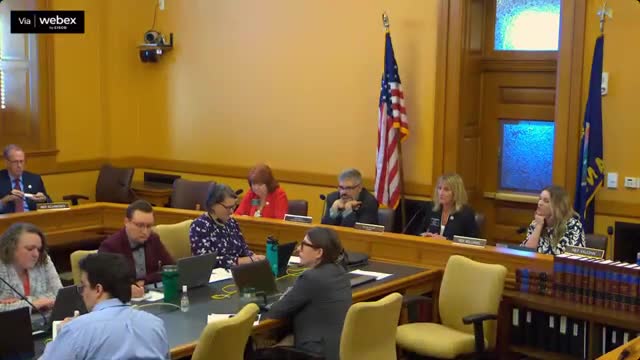House Judiciary reviews KOMA/KORA obligations, drafting confidentiality and email rules
Get AI-powered insights, summaries, and transcripts
Subscribe
Summary
The Kansas House Committee on Judiciary heard an overview of the Kansas Open Meetings Act and Kansas Open Records Act, discussed protection of draft bill work product, and reviewed rules on serial communications and committee logistics.
TOPEKA — The House Committee on Judiciary on Tuesday reviewed requirements under the Kansas Open Meetings Act and the Kansas Open Records Act, received guidance on when draft bill requests are treated as confidential, and discussed limits on serial electronic communications among members.
Jason Thompson of the Office of Revisor of Statutes led the committee through the statutes and best practices, telling members, “What you should have is the now standard memo from the office of reviser statutes about the Kansas Open Meetings Act and the Kansas Open Records Act.” He said the acts apply to legislative committees and subcommittees unless a specific exemption applies, and noted the legislature often goes “above and beyond” statutory notice requirements by posting agendas and streaming meetings.
Thompson emphasized two common pitfalls: gatherings that meet the statutory definition of a meeting (a majority of voting members discussing committee business) and “serial communications” — a series of one-to-one or small-group exchanges that together involve a majority and are intended to produce agreement. “Don't send out an email to, you know, the majority of the body saying, how are you gonna vote on this bill?” he said, warning that such exchanges can create a KOMA violation.
Rep. Dan Osman, who represents District 48, asked whether an email chain that includes a majority but includes nonactive recipients could still create liability; Thompson replied that courts and opinions have sometimes treated nonactive participants the same as active ones and that such matters are often “cured” when the conversation is later held publicly. Thompson told the committee to contact the Revisor’s Office promptly if a questionable communication occurs so the matter can be handled before it becomes an enforcement issue.
The Revisor’s Office also addressed confidentiality around RS (revisor) drafts. Thompson said drafts requested from the Revisor are treated as work product and attorney–client communications while they remain in the reviser’s office and are not automatically public records. “When you contact a reviser for a bill draft, we will treat that with the utmost confidentiality,” he said. He added that if the requesting legislator shares a draft with outside advisers, that disclosure can waive the privilege for that document.
Rep. Carmichael pressed the group on whether legislators may share drafts with outside experts for technical review. Thompson said the reviser will not discourage a legislator from seeking expert input, but warned that distribution outside the confidential circle can make the draft a public document if it is later provided to a majority of the committee or otherwise disseminated.
Committee logistics discussed at the meeting included: a new set of committee rules expected to be posted before Tuesday; a goal of meeting Monday through Thursday (with occasional Friday or “bridal” sessions if the schedule requires); and an offer to supply printed packet materials on request through the committee assistant. The committee assistant, Lene Hosek, was identified as the contact for requests for paper documents.
Thompson and other Revisor staff urged members to route formal public-records requests to the appropriate custodian — generally the committee secretary or Legislative Administrative Services — and to notify the Revisor’s Office promptly if a formal KORA request arrives. Thompson noted KORA responses generally trigger a three-day statutory timeline to acknowledge the request and explain next steps.
The committee heard the guidance without taking formal votes. The chair closed by reminding members that the Revisor’s Office and legislative staff are available for follow-up questions.
The session also included brief member introductions and an informal discussion on drafting style (including the “Oxford comma”), but the substantive portion of the meeting centered on KOMA/KORA compliance, draft confidentiality and communication protocols that committee members must follow.
